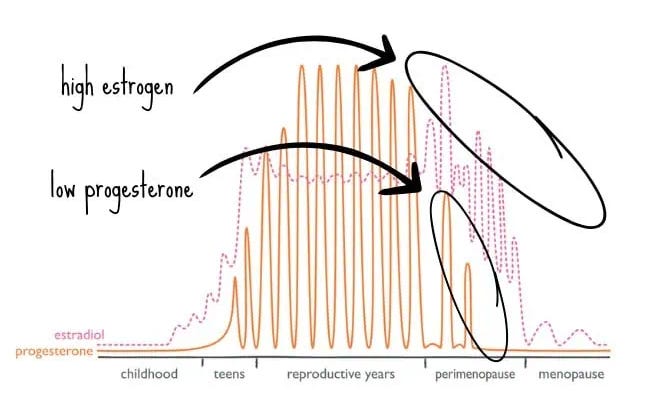Perimenopause?


If you’re asking this question, you’re probably experiencing changes that feel confusing, overwhelming, or just… different. Maybe you’re in your late 30s or early 40s, still getting your periods, but something fundamental has shifted. Your body feels foreign. Your emotions are all over the place.
The truth is, working out if you’re in perimenopause—especially early perimenopause—is far more complex than most doctors make it sound. Getting this right matters enormously, because the wrong approach can actually make everything worse.

Let me share something that might surprise you: perimenopause is actually characterised by higher, more erratic estrogen levels, not the low estrogen state everyone talks about with menopause [1,3,4].
I know this sounds backwards from everything you’ve probably heard, but the research is crystal clear. During perimenopause, your estrogen levels can be 26% higher than they were during your regular reproductive years, swinging wildly up and down in ways that make no sense [3]. At the same time, your progesterone production is declining, creating this state we call “estrogen dominance.”
This explains so much of what you might be experiencing: the flooding periods, the tender breasts, the mood swings, the sleepless nights, the weight that seems to appear overnight, and that overwhelming feeling that your body has been taken over by someone else’s hormones [1,2].
Many women tell me they feel “pregnant” during this time—and that makes perfect sense, because high estrogen symptoms (breast tenderness, bloating, emotional sensitivity) are exactly what you experience in early pregnancy [1,4].
the
BEST THE BLOG
of
+ Show / Hide Comments
Share to: